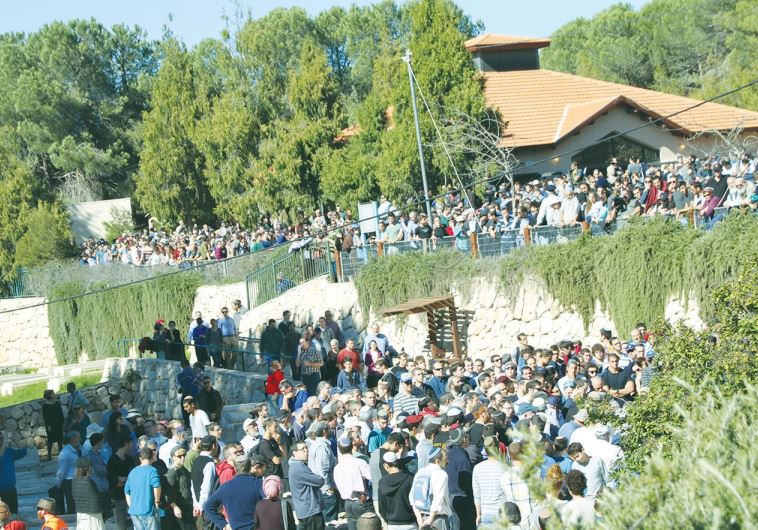Terrorism victim's wife: 'What was will never be again'
Beloved educator and father of four, Yaakov Don, laid to rest in Kfar Etzion.
 HUNDREDS OF MOURNERS attend the funeral on Friday in Gush Etzion of educator Yaakov Don, 49(photo credit: TOVAH LAZAROFF)
HUNDREDS OF MOURNERS attend the funeral on Friday in Gush Etzion of educator Yaakov Don, 49(photo credit: TOVAH LAZAROFF)